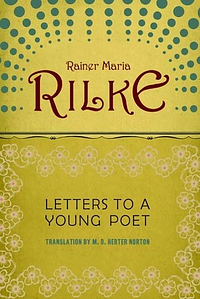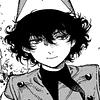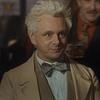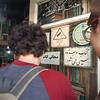Take a photo of a barcode or cover
challenging
reflective
fast-paced
A collection of letters written by Rilke to an aspiring poet. In the letter Rilke offers his advice on pursuing creative vocations including poetry. He emphasizes the importance of solitude and patience for an artist. Further he asks the young poet to stop looking for external validation, instead look into his own inner world for justification to pursue poetry.
Rilke is a very eloquent and graceful writer, and the letters are work of arts in themselves. He manages to pack a lot of wisdom in very few pages.
Rilke is a very eloquent and graceful writer, and the letters are work of arts in themselves. He manages to pack a lot of wisdom in very few pages.
hopeful
inspiring
reflective
medium-paced
inspiring
lighthearted
reflective
relaxing
fast-paced
reflective
fast-paced
Ohhh, the masses are going to dislike my opinions on this one methinks.
Listen, I swear this is not me being "just making sure I don't fit in.... 🧍♀️🧍♀️🧍♀️🧍♀️🧍♀️🧍🧍♀️🧍♀️🧍♀️🧍♀️" or contrarian or whatever the fuck. I went into this fully expecting to have the popular opinion. That is not what happened! So, here we are.
I do not lay the blame of my failed expectations down at Rilke's feet cuz this was published posthumously and these letters were never meant to be collected and read by anyone other than their recipient. I'm just... really confused as to why they were deified as some grand reservoir of artistic inspiration. Are there concepts and advice here worthy of consideration? Absolutely. There's one letter in particular that talks about sorrow and hardship that I genuinely loved and highlighted the hell out of.
But honestly, I think this text reads better as a psychological examination of artistry rather than as a guidebook to follow AS an artist. And the afterword by the translator seems to agree with me on that point, which makes me wonder why this version of the text is pitched on the backcover summary as the latter... very weird dissonance there, though I suppose that's due to its reputation in the mainstream.
As a philosophical text, it's almost laughably shallow and surface-level. I had similar musings on life and loneliness as a self-indulgent 17 year old who was convinced of the superiority of my own internal complexity over that of my peers. In a teenager, that level of pretentiousness can be forgiven. In personal correspondence, it can be forgiven. As a published text with the reputation and influence that this one has, I am MUCH less forgiving. In fact, throughout much of the reading experience, I held genuine contempt. I do not subscribe at all to this "cult" of loneliness/solitariness that Rilke tries to peddle throughout much of these letters. Great art is just as equally born from experience and collaboration as from introspection. In all honesty, I think focusing too much on the latter is a recipe for disaster lest you get too stuck in your own head, an affliction which both the author, the recipient, and myself can probably all equally attest to 💀 There's no faster and more destructive way to stagnate creatively (and personally), imo. My 10+ year creative writing block proves that beyond a shadow of a doubt 😭 Although it seems to have worked out okay for Rilke, so what the fuck do I know. I just don't think it's good creative, or even self-improvement advice.
Regardless, this reading experience was bogged down completely by the lofty pedestal everyone places this book on. SOOOO many creatives cite this as a major inspiration for them, and I'm just wondering: How. Why. I gather far more inspiration from experiencing great works of art than I do from reading shallow platitudes about the creation of it.
Can you tell this book annoyed the fuck out of me LOL I'm rating this one a 2.75/5. PURELY for that one passage I really liked.
Listen, I swear this is not me being "just making sure I don't fit in.... 🧍♀️🧍♀️🧍♀️🧍♀️🧍♀️🧍🧍♀️🧍♀️🧍♀️🧍♀️" or contrarian or whatever the fuck. I went into this fully expecting to have the popular opinion. That is not what happened! So, here we are.
I do not lay the blame of my failed expectations down at Rilke's feet cuz this was published posthumously and these letters were never meant to be collected and read by anyone other than their recipient. I'm just... really confused as to why they were deified as some grand reservoir of artistic inspiration. Are there concepts and advice here worthy of consideration? Absolutely. There's one letter in particular that talks about sorrow and hardship that I genuinely loved and highlighted the hell out of.
But honestly, I think this text reads better as a psychological examination of artistry rather than as a guidebook to follow AS an artist. And the afterword by the translator seems to agree with me on that point, which makes me wonder why this version of the text is pitched on the backcover summary as the latter... very weird dissonance there, though I suppose that's due to its reputation in the mainstream.
As a philosophical text, it's almost laughably shallow and surface-level. I had similar musings on life and loneliness as a self-indulgent 17 year old who was convinced of the superiority of my own internal complexity over that of my peers. In a teenager, that level of pretentiousness can be forgiven. In personal correspondence, it can be forgiven. As a published text with the reputation and influence that this one has, I am MUCH less forgiving. In fact, throughout much of the reading experience, I held genuine contempt. I do not subscribe at all to this "cult" of loneliness/solitariness that Rilke tries to peddle throughout much of these letters. Great art is just as equally born from experience and collaboration as from introspection. In all honesty, I think focusing too much on the latter is a recipe for disaster lest you get too stuck in your own head, an affliction which both the author, the recipient, and myself can probably all equally attest to 💀 There's no faster and more destructive way to stagnate creatively (and personally), imo. My 10+ year creative writing block proves that beyond a shadow of a doubt 😭 Although it seems to have worked out okay for Rilke, so what the fuck do I know. I just don't think it's good creative, or even self-improvement advice.
Regardless, this reading experience was bogged down completely by the lofty pedestal everyone places this book on. SOOOO many creatives cite this as a major inspiration for them, and I'm just wondering: How. Why. I gather far more inspiration from experiencing great works of art than I do from reading shallow platitudes about the creation of it.
Can you tell this book annoyed the fuck out of me LOL I'm rating this one a 2.75/5. PURELY for that one passage I really liked.
inspiring
reflective
Short enough to read and thought provoking. Just not for me
‘Must I write?’
‘Dig into yourself for a deep answer, and if this answer rights out in assent, if you meet this solemn question with a strong, simple “I must”, then build your life in accordance with this necessity.’
‘Dig into yourself for a deep answer, and if this answer rights out in assent, if you meet this solemn question with a strong, simple “I must”, then build your life in accordance with this necessity.’
hopeful
reflective
relaxing
fast-paced
i mean it's aight, it's cute i guess
emotional
hopeful
inspiring
sad
medium-paced
I can't help imagine just how much better our world would be if everyone took a day out of their lives to read this book. What a book. What wisdom. I see myself rereading this until the pages fall out.






